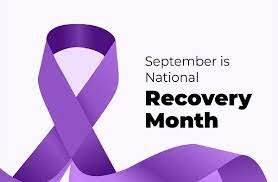National Hispanic Heritage Month recently ended. It is a celebration of American citizens whose ancestors came from Mexico, the Caribbean, Central and South America. This is the only celebration that begins and ends in the middle of two months! The celebration begins September 15th as numerous Latin American Countries achieved independence on that date.
Hispanics have experienced a great deal of historical trauma both in the United States, the Caribbean Islands, Central and South America. There is a link between historical trauma and substance use disorders. We have learned from the Native American Wellbriety movement that cultural celebrations which increase cultural pride can be a substance use disorders protective factor and help increase recovery rates.
Hispanics are the fastest growing community in the United States. It is predicted that by the year 2050 they will be the largest cultural group in the country. As demographic shifts continue to occur, history reveals that we can expect an increase in racial tension leading to greater trauma and the potential for increased substance use.
Organizations such as Hispanic/Latino Behavioral Health Center of Excellence and the National Hispanic & Latino Mental Health Technology Transfer Center, are playing a major role in increasing culturally responsive and evidence based approaches for working with Hispanics with substance use disorders. We are also seeing an increase of Latino/Hispanic substance use disorders specialists in key leadership positions in the substance use disorders profession. This will help tremendously as well.
In the future there will need to be an increase in the number of bilingual/bicultural professionals who are able to serve Hispanic communities. Special emphasis will need to be placed upon substance use disorders prevention, treatment and recovery for recent migrants who have fled Central and South America escaping trauma.
Personally, I feel a special kinship with Latino/Hispanic Communities. When the Africans were brought to the ‘New World’ to be enslaved, millions were first brought to the Caribbean Island, Central and South America. They are our brethren! I also attended a high school in which 70% of my classmates were Latino/Hispanic and was able to witness the richness of the culture up close.
I hope you have enjoyed Hispanic Heritage Month.

